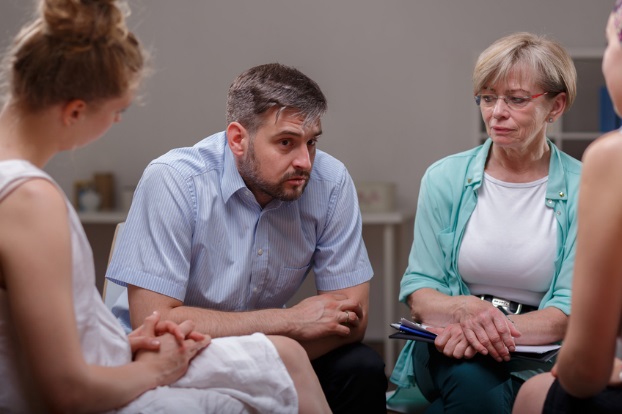
Those who succeed on the addictions counsellor career path are those who can defer judgement and embrace the complexities of their clients. This is especially true for dual-diagnosis clients: individuals who have both a mental illness and an addiction to drugs, alcohol, or other unhealthy substance or habit.
Because many addictions and mental illnesses have overlapping symptoms, treating dual diagnosis clients can present unique and difficult challenges. Here are three strategies for using addictions counsellor training to work effectively with dual diagnosis clients.
1. Sharing Support and Knowledge of Community Support Services in Counselling Sessions
Individual and group counselling sessions with a certified counsellor are trusted ways for clients to receive informed, responsible input and advice. According to the American National Survey of Substance Abuse Treatment Services, 93 per cent of clinical addictions treatment facilities use counselling as their main means of treating patients with substance abuse issues. (N-SSATS, 2012)
Skilled addictions counsellors are trained to recognize the different psychological factors at play in a client’s life choices, and are able to connect these clients with the local community support services and resources they may need (such as health clinics, not-for-profit helplines, child and family support services, and more). In addictions counsellor training they learn to design and conduct counselling and coaching programs for individuals facing a wide range of addictions, such as substance abuse, sex, technology, gambling, and related issues. They provide both client assessment and referral, directing clients to the appropriate health and safety services beyond their own personal scope of expertise.
For example, a session with an addictions counsellor may show a client that they are experiencing drug addiction fuelled by anxiety issues, and could benefit from medical attention and care. Through motivational interviewing and lasting support, an effective addictions counsellor helps such clients develop responsibility for themselves and take the necessary steps towards an improved quality of life.
2. Applying Behavioural Modification Therapy after Addictions Counsellor Training
Breaking the cycle of addiction involves sustained behavioural modification. Put simply: clients must change their behavioural patterns to kick their unhealthy habits. For dual diagnosis clients, unhealthy behaviour that feeds their addictions is often a means of coping with their mental illnesses. In these cases, learning to develop healthier coping mechanisms and avoid mental illness triggers can be tremendously effective.
Good addictions counsellors help clients identify potential triggers for addictive behaviour and eliminate or avoid them. This may involve ensuring that dual diagnosis clients are avoiding interacting with certain harmful contacts, while taking any prescribed medications and attending any meetings/sessions involved in their broader treatment or recovery plans. (Daley, 2006)
Many individuals who choose to become addictions counsellors have survived addictions themselves, and are therefore intimately familiar with navigating this process. In addictions counsellor courses like those taught at Rhodes College, individuals come to understand the power and value in addressing self-destructive behaviours. Through experiential learning techniques, students are called to recognize an addiction of their own (such as smoking or sugar) and work hard to break their addictive habits through behaviour modification (like stopping smoking after meals, or not eating sugary breakfasts). These minor behaviour adjustments can contribute to truly lasting life transformations.
3. Using Addictions Counsellor Training to Manage Relapses/Promote Aftercare
Destructive and addictive behaviours are not easily overcome, and relapse is an important element of many dual diagnosis clients’ journeys to recovery.
Addictions counsellors can provide a steady hand in these difficult times, letting individuals know that they are not alone and always worthy of wellness. They can also provide some much-needed structure in their clients’ lives through sustained aftercare sessions and check-ins that keep clients accountable for their clean living in the long run.
Post-recovery counselling can also help clients rebuild the personal relationships, careers, and financial stability that may have been jeopardized by their addictions. By providing those facing addiction with the tools they need to succeed in the outside world, including behavioural modification, knowledge of relevant community services, and meaningful support from their counsellors, they can regain the healthy and fulfilling lives they deserve.
Are you ready to begin addictions counsellor training in Vancouver?
Visit Rhodes to learn more about getting started.
Sources:
Daley, Dennis C. Approaches to Drug Abuse Counseling. National Institutes of Health: National Institute on Drug Abuse. Pittsburgh: 2006.
National Survey of Substance Abuse Treatment Services (N-SSATS). Data on Substance Abuse Treatment Facilities. Department of Health and Human Services Substance Abuse and Mental Health Services Administration: 2012.











